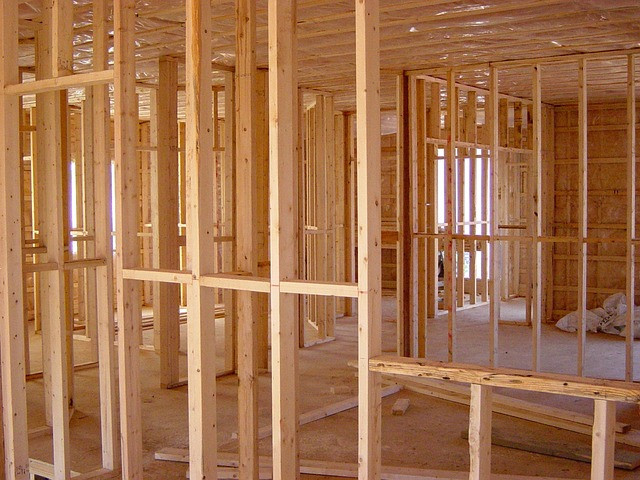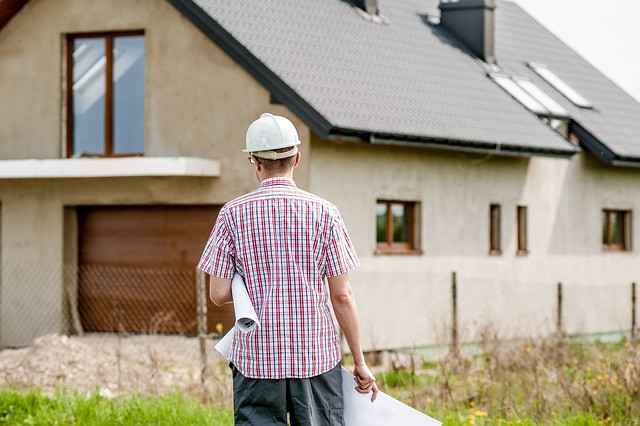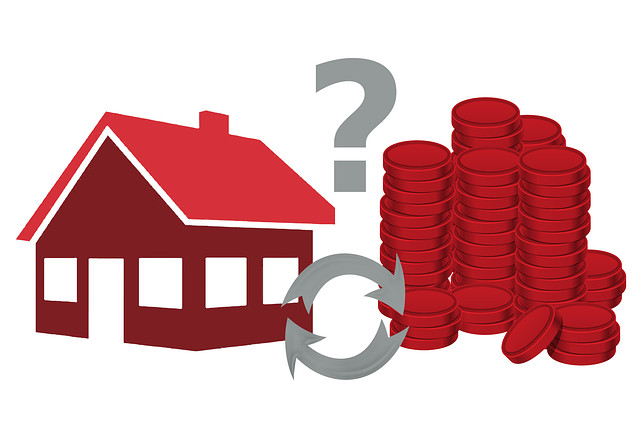
In today’s competitive real estate market, navigating the world of new home construction can be a daunting task. From understanding monthly housing costs to closing the deal, there are numerous factors to consider. That’s where a trusted real estate agent comes in.
This article explores the role of a real estate agent in new home construction, as well as budgeting for your new home and planning for long-term financial stability. Stay ahead of the game and make informed decisions with the help of this comprehensive guide.
Table of Contents
Navigating New Home Construction in Today’s Real Estate Market

In today’s real estate market, navigating new home construction requires careful consideration of market trends and potential challenges. When it comes to purchasing a new construction home, it is essential to have a knowledgeable real estate agent by your side. They can guide you through the process, from finding the right builder and negotiating a purchase agreement to understanding property taxes and mortgage payments.
One crucial aspect to consider is the builder’s reputation, as this can have a significant impact on the quality and value of your new home. Additionally, staying informed about current mortgage rates is essential to securing the best financing options.
With the assistance of a trusted buyers agent, you can navigate the complexities of new home construction and make informed decisions that align with your needs and budget.
The Role of a Real Estate Agent in New Home Construction

A real estate agent plays a crucial role in guiding clients through the process of purchasing a newly built property. Here are three ways in which a real estate agent can assist buyers in navigating new home construction:
1. Expertise in the field: A real estate agent specializing in new home construction will have in-depth knowledge of reputable builders in the area. They can help buyers find a builder that meets their needs and budget, ensuring they get the best value for their purchase price.
2. Streamlined financing: Real estate agents have connections with mortgage lenders who specialize in new construction loans. They can help buyers secure the financing they need to purchase their dream home, navigating the unique requirements of construction loans.
3. Advocacy and support: From the initial visit to the model home to the final walk-through and move-in date, a real estate agent will be there every step of the way. They can assist with negotiating the purchase contract, coordinating home inspections, and ensuring that the payment schedule aligns with the construction timeline.
Budgeting for Your New Home: Understanding Monthly Housing Costs

Understanding the monthly housing costs associated with your new property is essential for effective budgeting and financial planning. When purchasing a new construction or custom home, it is important to consider various expenses such as closing costs, down payment, and the home’s purchase price. These costs can significantly impact your budget and should be carefully taken into account.
Additionally, factors such as the chosen floor plan and the type of mortgage loan you secure will also affect your monthly housing costs. It is crucial to calculate the mortgage payments and other related expenses accurately to ensure that they align with your budgetary constraints.
The True Price of Homeownership: Exploring Monthly Housing Costs

When considering the true price of homeownership, it is crucial to thoroughly evaluate and plan for the various monthly housing costs associated with your property. These costs can significantly impact your budget and financial stability. Whether you are purchasing an existing home or a new construction home, it is essential to understand the ongoing costs involved in homeownership.
Here are three key items to consider:
1. Mortgage Payments: The largest monthly cost for most homeowners is their mortgage payment. This is the amount you owe each month to pay off your home loan. It is important to consider the interest rate, loan term, and down payment when calculating your mortgage payment.
2. Property Taxes: Property taxes are assessed by local governments and can vary depending on the location and value of your property. These taxes are typically paid annually but can be divided into monthly payments.
3. Homeowners Insurance: Insurance is necessary to protect your investment in case of damage or loss. The price of home insurance may differ depending on variables like your property’s worth, where it is situated, and the coverage choices you make.
Closing the Deal: What to Know About Closing Costs

Closing costs play a significant role in the home buying process as they include various fees and expenses that must be paid at the time of closing. When purchasing a new home construction, it is important to understand the potential closing costs involved.
Closing day is the final step in a real estate transaction, and it is when these costs are paid. Builders typically have a track record of charging certain closing costs, and it is crucial to review these costs before making a decision. Online reviews can provide insights into the builder’s reputation regarding closing costs.
Additionally, obtaining a preapproval letter can help buyers to estimate their potential closing costs. Bidding wars can also impact closing costs, as higher offers may require additional funds. Lastly, it is essential to hire a home inspector to identify any potential issues that may affect the closing costs.
New Home Construction Trends in the Current Real Estate Market

In the current real estate market, there is a growing trend towards innovative and sustainable designs for residential properties. Builders are adapting to the changing demands of buyers by incorporating new construction trends into their projects. Here are three key trends in new home construction:
1. Emphasis on energy efficiency: With rising energy costs and increasing environmental concerns, buyers are looking for homes that are designed to be energy-efficient. Builders are incorporating features such as solar panels, energy-efficient appliances, and smart home technology to help homeowners save on energy costs.
2. Focus on open concept living: Open floor plans continue to be popular among buyers. Builders are designing homes with spacious kitchens that flow into the living and dining areas, creating a sense of openness and connectivity.
3. Integration of outdoor spaces: Buyers are seeking homes that allow them to enjoy the outdoors. Builders are creating new communities with amenities such as parks, walking trails, and outdoor living areas, giving homeowners the opportunity to relax and socialize in nature.
These trends in new home construction reflect the evolving needs and preferences of buyers, while also providing long-term savings and a sustainable living environment.
How a Real Estate Agent Can Guide You Through New Home Construction

A real estate agent can provide valuable guidance and support throughout the process of building a new home, ensuring that your needs and preferences are met every step of the way. When it comes to new home construction, having a knowledgeable and experienced real estate agent by your side can make a world of difference.
They can guide you in finding the right builder for your project, helping you navigate through the contract and payment process. Additionally, they can assist you in finding the right lender for your new home construction loan.
A real estate agent will work closely with you, the buyer, to understand your specific requirements and preferences, ensuring that all the necessary details are taken care of during the construction process. With their expertise, a real estate agent can help make your new home construction journey smoother and more successful.
Calculating and Managing Your Monthly Housing Costs

When calculating and managing your monthly housing costs, it is important to consider factors such as mortgage payments, property taxes, and homeowners insurance. These expenses can significantly impact your overall budget and should be carefully accounted for when planning to buy a new home.
Here are three key points to consider:
1. Mortgage payments: This is the largest expense for most homeowners. It is crucial to work with lenders and builders to calculate a comfortable monthly mortgage payment that fits within your budget.
2. Property taxes: These taxes are based on the value of your property and vary depending on your location. It is important to understand the tax rates in your area and factor them into your monthly housing costs.
3. Homeowners insurance: Protecting your investment is essential. Homeowners insurance covers damages to your property and its contents. It is important to shop around for the best insurance rates and coverage options to ensure you are adequately protected while managing your monthly housing costs effectively.
Hidden Costs: Understanding the Full Picture of Monthly Housing Expenses

Understanding the full picture of monthly housing expenses requires a careful examination of all potential hidden costs that may impact your budget.
When it comes to purchasing your dream home, whether it is a new home construction or an older home, it is essential to consider these hidden costs. While the price tag of the property may seem affordable, there are additional expenses that need to be taken into account.
For instance, new home constructions often come with additional fees such as homeowner association dues or builder upgrades. On the other hand, older homes may require repairs and renovations that can quickly add up.
The Financial Side of New Home Construction: Closing Costs Unveiled

Closing costs are an important financial aspect to consider when purchasing a property, as they can significantly impact your overall budget. This is especially true when it comes to new home construction. Many people focus on the excitement of building their dream house, but it’s crucial to also pay attention to the financial side of the process.
Here are three key things to know about closing costs in the context of new home construction in Canada:
1. Builders may not always include closing costs in the initial price of the house. It’s essential to double-check the contract and have a clear understanding of what is included.
2. Closing costs for new home construction can be higher than those for an existing house. These costs can include land transfer taxes, legal fees, and utility hook-up fees.
3. Closing costs can add up quickly, so it’s important to budget accordingly. Set aside a portion of your funds specifically for these expenses to avoid any financial surprises down the road.
Smart Investments: Navigating the Real Estate Market for New Builds

Investors looking to make smart decisions in the real estate market should carefully navigate their options when considering new builds. When it comes to new homes, most builders offer a range of options to suit different preferences and budgets.
To decide which new build is the right investment, it is essential to work closely with a knowledgeable realtor who can provide guidance and insight. For example, a realtor can help assess the potential return on investment of a new build project, taking into account factors such as location, amenities, and market demand.
Additionally, investors should consider the interest rates and financing options available, as well as any potential tax benefits that may apply. By carefully considering these factors, investors can create a smart investment strategy that not only saves them money but also maximizes their returns in the long term.
Real Estate Agents: Your Trusted Partner in New Home Construction

Working closely with a knowledgeable real estate agent can provide valuable guidance and expertise when navigating the process of building a new home. A real estate agent can help you find the perfect lot, negotiate with builders, and ensure that your interests are protected throughout the construction process. Here are three reasons why having a trusted real estate agent by your side is essential when building a new home:
1. Expertise: Real estate agents have a deep understanding of the local market and can provide valuable insights into the best neighborhoods, builders, and materials to use for your new home.
2. Negotiation Skills: Building a new home involves numerous negotiations, from pricing and upgrades to contract terms. A skilled real estate agent can negotiate on your behalf to secure the best deal and ensure that your interests are protected.
3. Network: Real estate agents have an extensive network of contacts, including builders, contractors, and suppliers. They can connect you with trusted professionals who will help ensure the smooth and successful construction of your new home.
Monthly Housing Costs: Planning for Long-Term Financial Stability

When planning for long-term financial stability, it is crucial to carefully consider the monthly housing costs associated with your investment. These costs can have a significant impact on your overall budget and should not be overlooked.
Monthly housing costs typically include mortgage or rent payments, property taxes, homeowners or renters insurance, and maintenance fees. It is important to analyze these expenses and ensure that they align with your financial goals and capabilities.
Additionally, it is essential to consider any potential changes in these costs over time, such as increases in property taxes or insurance premiums.
From Offer to Closing: Demystifying the Home Buying Process and Costs
The process of purchasing a property involves various steps and expenses that should be understood and carefully managed to ensure a smooth and successful home buying experience. From the initial offer to the final closing, buyers need to navigate through a series of tasks and costs.
To demystify this process, here are three key steps and associated expenses to consider:
Offer and Negotiation
This is the stage where buyers submit an offer to the seller and negotiate the terms of the purchase. Expenses at this stage may include earnest money deposits, home inspection fees, and appraisal costs.
Financing and Mortgage
Securing a mortgage is an essential part of buying a home. Expenses in this stage include loan origination fees, credit report fees, and closing costs.
Closing and Transfer of Ownership
The final stage involves completing the paperwork, paying closing costs, and transferring ownership. Expenses at this stage may include attorney fees, title search fees, and recording fees.
Staying Competitive in the New Home Construction Real Estate Market
To remain competitive in the real estate market for newly built properties, it is crucial for buyers to stay informed about current market trends and make strategic decisions based on market conditions and demand.
With the increasing demand for new home construction, buyers need to be aware of factors such as location, amenities, and pricing in order to make informed decisions. Keeping up with market trends can help buyers identify potential investment opportunities and negotiate favorable deals.
Additionally, understanding market conditions can help buyers determine the best time to enter the market and make a purchase. By staying informed and making strategic decisions, buyers can position themselves competitively in the new home construction real estate market and maximize their chances of finding their dream home.
Related Article: Cost to Build a House: Understanding Square Footage and Financing Options
Frequently Asked Questions
How Can I Navigate the New Home Construction Process in Today’s Real Estate Market?
In today’s real estate market, navigating the new home construction process requires a thorough understanding of the industry, knowledge of local regulations, and effective communication with builders and contractors to ensure a smooth and successful project.
What Is the Role of a Real Estate Agent in the New Home Construction Process?
A real estate agent plays a crucial role in the home construction process by providing guidance, negotiating contracts, and ensuring that the client’s interests are protected. They act as a liaison between the buyer and the builder, ensuring a smooth and successful transaction.
How Can I Budget for My New Home and Understand the Monthly Housing Costs?
To budget for a new home and understand monthly housing costs, it is crucial to consider factors such as mortgage payments, property taxes, insurance, utilities, and maintenance expenses. Proper financial planning and a comprehensive understanding of these costs are key.
What Are the Hidden Costs Associated With Monthly Housing Expenses?
Hidden costs associated with monthly housing expenses can include property taxes, homeowner’s insurance, maintenance and repair costs, and homeowner’s association fees. These additional expenses should be factored into your budget to ensure you are financially prepared for homeownership.
How Can I Stay Competitive in the New Home Construction Real Estate Market?
In order to stay competitive in the real estate market, it is crucial to understand the dynamics of the industry, conduct thorough market research, establish a strong network, and continuously adapt to changing market trends and consumer demands.
Conclusion
In conclusion, navigating the new home construction process requires careful planning and budgeting.
Real estate agents play a crucial role in guiding buyers through the process and ensuring they understand the true costs of homeownership.
From monthly housing costs to closing costs, it is important to have a trusted partner to help navigate the complexities of the real estate market.
By staying informed and prepared, buyers can make informed decisions and achieve long-term financial stability.
